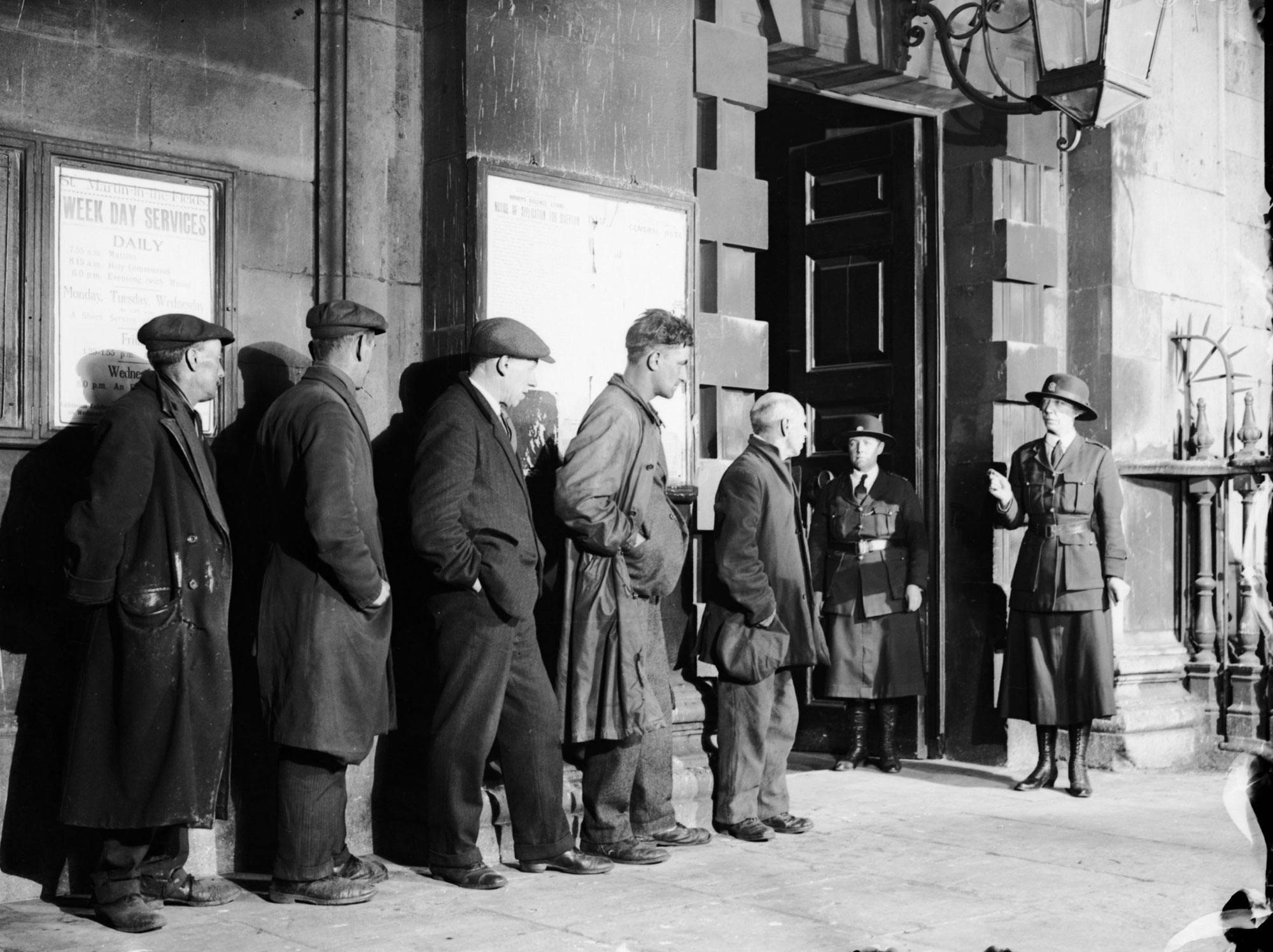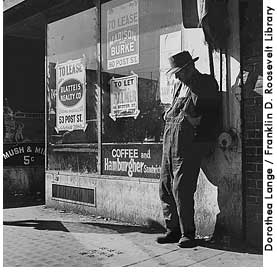
A Rabble of Dead Money
The Great Crash and
The Global Depression: 1929 - 1939
Charles R. Morris
(PublicAffairs)

Part IIWhat a pity Hoover chose to run for president in 1928, thereby getting swept up in the Depression. He was a sincerely competent, honest man, and his heart might even have been in the right place - - - even though late in the game. His Reconstruction Finance Corporation established in 1932 was the right idea at the right time, making emergency federal loans to banks and businesses. It was "later exploited, if only occasionally acknowledged, by the New Dealers."And Hoover's stark blindness to the real world outside his tough carapace finally brought him down, especially calling in that nitwit Douglas MacArthur to quell the veterans march on Washington, summer 1932. MacArthur fell on the squatters at Anacosta Flats, and "the area was cleared with considerable roughness, including whacking with saber flats, and burning most of the tents the squatter's pathetic belonging."
Hoover's response? He became, briefly, a Donald Trump . . . eighty years before his time, complete with a veritable "tin ear for public relations." Hoover turned harshly on imaginary critics. He demanded a grand jury investigation of the alleged subversives and criminals in among the marchers. These, the veterans, of WWI, but asking for their due.
§ § § A Rabble of Dead Money, despite its ridiculous title, is a gold-mine of contrarian facts, and Charles Morris is masterful in presenting them. His language is a jewel hidden in the turgid bogs of most historical writing, and any of us who have a love for the past that we may know personally (in my own case, parents and friends of parents who spoke frequently and fervently of America between 1929 and 1939) it becomes a treat beyond measure to have the stories retold in ways that prove that most of what we heard as children was not only wrong, but tragically wrong.
We learn here that Williams Jennings Bryan was no "bigoted, ill-informed, hopelessly outdated old man," despite his willing cross-examination at the Scopes trail. We learn that those like Charles Darwin who dared to call humans "the wonder and glory of the universe," even though, as the author points out,
If an alien race had happened to survey the earth in the years after 1914, they might have concluded that humans were best at killing each other with monstrous instruments.
We learn for example that the oft-maligned Samuel Insull "was a great entrepreneur, by no means a crook - - - though for 1920s financiers, crookedness was not a high bar." Morris recognizes him now as the Henry Ford of the powering of early nineteenth century America, leaving the Middle West one of the richest areas in the world as far as universal access to a cheap and constant flow of electricity - - - unheard of before his time.
After his fall, Insull was tried for embezzlement, but the charge "hardly squared with the fact that he had almost no money . . . and he probably lost more than any individual investor." Indeed, at his trial, he "wove a spell" around the jury,
explaining what he had done in Chicago, the intriguing technical issues, the shift to steam turbines, his mastering of the economics of the business, his sadness at the ending.
So much so that those of us who specialize in exhuming for derision the high-finance pirates of that era can, with the assist of our historian, come almost to like the old bastard.
Charles R. Morris is one of the brightest and best of historians for those of us who like ours straight, amusing, involved, and bereft of lorky verbiage. Indeed Morris' only failure - - - and I apoligize for this, dependent as it is with my own problem with economics (I failed a course in college, taught by no less a luminary than Paul Anthony Samuelson) - - - flows from his attempt to make the dismal art far less dismal. Phrases like "the sterilization of gold," "achievement of parity," "pre-war parity," "reinflation,"and "the return to the gold standard" do leave some of us dazed, and fiscal minutiae often make us want to bail out as quickly as possible to the Hard Times & Misery Saloon next door to our pied-à-terre:
So long as sterling wasn't directly linked to gold, the price differential could be accommodated in the exchange rates; alternatively if a fixed peg was desirable, the British could choose a sterling/gold rate sufficiently below the cononical $4.86 rate to eqauilize the $/£ average price for traded commodities. $4.30-$4.35 or so may have been about right.
About right for them, but some of us find the "Ten-year Swap Rate, "The Run Rate" or "20-Year Treasury Constant Maturity Rate" as mysterious as the conceiving and birthing of the very stars. For economical dunderheads, a little of this lingo goes a long way.
No matter. Morris is the man. Read him and love him. Anyone who can dare, after all these years, to try to prove - - - or worse, even succeed in proving - - - that Prohibition actually worked; anyone who dares to go into that fraught territory and survive . . . well let us be the last to whine over a little occlusive fiscal language. "During the years 1900 - 1915, American adults consumed, on average, about 2.5 gallons of pure alcohol per year."
In the first year after repeal, however, alcohol consumption was less than one gallon a year, and it increased only slowly thereafter - - - to 1.2 gallons in 1935, and 1.5 gallons in 1936-1941 - - - and did not reach the 1900-1915 average until the 1960s.
"In addition, in the early years of Prohibition, admission to state hospitals for alcoholism dropped substantially, and a number of social service studies concluded that there had been a substantial decline in drinking, especially in smaller towns and among the working classes. "
I propose, here and now, a toast to Charles R. Morris, former lawyer and banker - - - who livened up this fourth of July weekend for me and all those around me who were forced to listen to my extended readings on the delightful pecuniary workings of our all-too-recent fiscal lives.
--- L. W. Milam